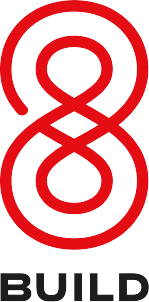How can you ensure all supplier insurance is up to date?
Summary
In this article you will learn about:
- The importance of all your suppliers having up-to-date insurance.
- The difficulties in ensuring suppliers' insurances are up to date and how to overcome them.
- How to easily monitor supplier insurances.

Having insurance is an important part of any business. Having up-to-date insurance coverage can protect against potential losses and liabilities, ensuring that a company can remain operational if an unexpected event occurs.
For suppliers, there are many different types of insurances. Some are statutory by law and others are optional. Making sure a supplier has the correct insurance will both protect the supplier financially if certain situations occur and the employer.
Why is it important that suppliers have up-to-date insurance?
Six reasons why suppliers should be vetted for insurance include:
- Protect your business - When you partner with a vendor, you’re trusting them with your products, services, and money. You need to make sure they are properly insured to cover any potential losses. This is especially important if you’re working with a vendor who’s providing a service that could be hazardous or dangerous. Vetting them for insurance will ensure that your business isn’t liable for any accidents or damages that may occur.
- Reduce Risk - Vetting suppliers for insurance will help to reduce the risk associated with working with a vendor. It’s important to understand the type of coverage the vendor has and the limits of the policy. This will ensure that your business is not held liable for any losses incurred by the vendor.
- Avoid Disputes - Vetting suppliers for insurance can also help to avoid disputes between you and the vendor. If you have a valid claim, the supplier’s insurance will likely cover it. This can help to avoid a costly dispute between the two parties.
- The Law - If a supplier does not have the correct statutory insurance in place before working on-site for required risks, they are breaking the law.
- Your Contract - If your suppliers don’t have the correct insurance, it could put your company in breach of your contract with your employer.
- Peace of Mind - Without insurance, if certain events occur, it could lead to the insolvency of a supplier which will result in the supply chain end user having to find a new supplier.
Difficulties making sure supplier insurance is up to date
Supplier insurance is a critical aspect of any business. It helps protect your organisation from unexpected losses caused by supplier negligence or other issues. However, managing and ensuring that this insurance is kept up to date can be a difficult task.
The amount of effort and resources necessary to manage supplier insurance depends on the size and complexity of the organisation. For small businesses, the task may be relatively straightforward, while larger and more complex organisations may encounter challenges. This is due to the fact that supplier insurance must be regularly monitored. This may include reviewing policy documents for accuracy and ensuring that any changes or renewals are communicated and addressed. This helps to ensure that the policy is up to date and covers all potential risks.
Nine times out of ten the sub-contractor will have the renewal in hand, even if you have nothing on record. But what if your suppliers' EL/PL Insurance has expired and its renewal is overlooked by both parties? If they are appointed to a project and they cause a bad injury or damage, who is liable?
How can you easily monitor supplier insurance?
Our solution is Samson, a supply chain management and pre-qualification system. Keeping track of expiry dates is easy with Samson.
Samson manages critical dates by:
- Emailing your supplier 30 days before a document expires.
- Emailing your supplier the day the document expires (if the document hasn't been updated since the previous reminder).
- Sending you a copy of the reminder email.
- Moving your supplier to your non-compliant suppliers list if they have ignored all reminders. This will prevent them from being selected for project work until renewed documents and dates are in place.
Insurances are not the only documents you need to keep an eye on. Certificates, awards, and accreditations may also need monitoring. This could be important if you've based your approval of the supplier on an industry-recognised accreditation awarded to the supplier or sub-contractor. If they decide to no longer affiliate themselves with the accreditation, you may want to see additional information that would have been covered by the accreditation.
As our business has grown, Liaison has become ever more useful in properly vetting and approving our supply chain in an efficient and cost-effective manner; Liaison takes the drudgery out of information gathering in an efficient and user-friendly fashion, it has been a great help and time saver to our organisation.



